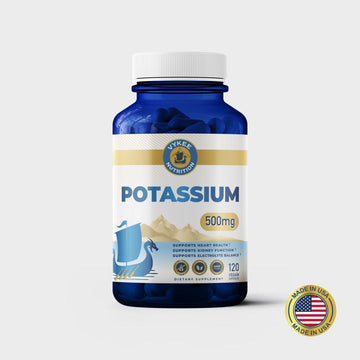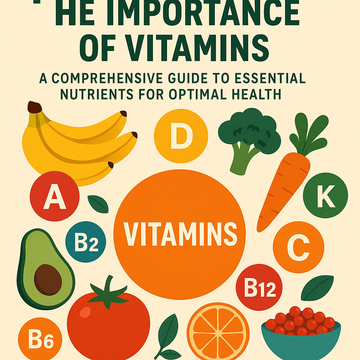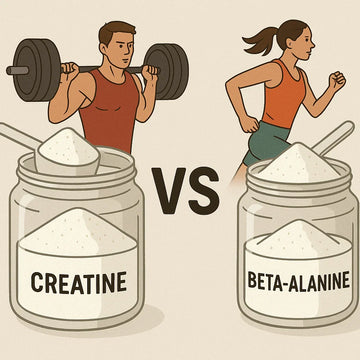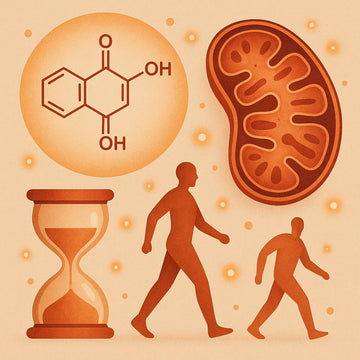Vitamins are essential nutrients that our bodies need in small amounts to perform crucial functions like immune support, energy production, bone health, and cognitive function. This article will explore the most important vitamins, including Vitamin D3, K2, B Complex (including B2 and niacinamide), and folic acid, outlining their roles in the body, deficiency risks, benefits, and recommended dosages.
1. Vitamin D3: The Sunshine Vitamin for Immune Function and Bone Health
Role in Calcium Absorption and Bone Health
Vitamin D3, also known as cholecalciferol, is crucial for calcium absorption in the intestines, which is necessary for bone strength and mineralization. According to research published in The American Journal of Clinical Nutrition, Vitamin D3 is essential for maintaining bone mineral density and preventing diseases like osteoporosis (Holick, 2007).
Impact on Immune System Function
Vitamin D3 has been shown to play a vital role in immune modulation, helping the body fight infections and reduce inflammation. Studies indicate that Vitamin D3 can enhance innate immune responses and reduce the incidence of autoimmune diseases (Gombart et al., 2020).
Vitamin D3 and Mental Health: Mood Regulation and Depression
Several studies have demonstrated a link between low levels of Vitamin D3 and mental health issues such as depression. A study published in JAMA Psychiatry found that individuals with low Vitamin D levels are at a higher risk of depression (Anglin et al., 2013).
Recommended Dosage and Deficiency Effects
The NIH recommends 600–800 IU per day for most adults. Deficiency can result in bone pain, weakness, and immune dysfunction (Holick, 2007).
2. Vitamin K2: The Calcium Regulator
Role in Bone Strength and Calcium Utilization
Vitamin K2 plays a critical role in activating osteocalcin, a protein that binds calcium to bones and teeth. Research has shown that Vitamin K2 supplementation improves bone density and reduces fractures in postmenopausal women with osteoporosis (Knapen et al., 2013).
Cardiovascular Health and Arterial Calcification Prevention
Vitamin K2 helps prevent the accumulation of calcium in arteries, a condition that can contribute to cardiovascular disease. A study published in Thrombosis and Haemostasis confirmed that individuals with higher intake of Vitamin K2 had a lower risk of coronary artery calcification (Roth et al., 2008).
Synergy with Vitamin D3
Vitamin D3 enhances calcium absorption, but Vitamin K2 ensures that calcium is used effectively in bones, not in arteries. According to research in The Journal of Clinical Endocrinology & Metabolism, combining Vitamin D3 and K2 results in enhanced calcium metabolism, supporting both bone health and cardiovascular function (Hana et al., 2013).
Clinical Research on Vitamin K2
A systematic review in Osteoporosis International found that Vitamin K2 supplementation significantly increased bone mineral density and decreased fracture risk in women with osteoporosis (Iwamoto et al., 2009).
3. B Complex Vitamins: Essential for Metabolism and Nervous System Health
The B complex vitamins include Vitamin B1 (Thiamine), Vitamin B2 (Riboflavin), Vitamin B3 (Niacin), Vitamin B5 (Pantothenic Acid), Vitamin B6 (Pyridoxine), Vitamin B7 (Biotin), Vitamin B9 (Folic Acid), and Vitamin B12 (Cobalamin). Each B vitamin plays a role in energy production, nerve function, and DNA synthesis.
Energy Production and Fatigue Prevention
B vitamins are critical for converting food into usable energy. A study published in The American Journal of Clinical Nutrition confirmed that Vitamin B1 (Thiamine) is essential for energy metabolism and helps prevent fatigue (Iannuzzi et al., 2019).
Nervous System Function and Mental Health
Vitamin B6, B12, and folate are crucial for brain function and mental health. Vitamin B12, in particular, supports myelin sheath production, which insulates nerve cells and ensures proper nerve signaling. A deficiency in Vitamin B12 can lead to cognitive decline and peripheral neuropathy (Duan et al., 2014).
Deficiency Effects
-
Vitamin B12 deficiency can lead to pernicious anemia and neuropathy.
-
Vitamin B9 (Folic acid) deficiency can result in neural tube defects and anemia.
4. Niacinamide (Vitamin B3): Skin Health and Metabolism
Niacinamide, a form of Vitamin B3, is widely used for its anti-inflammatory and skin health benefits. It helps improve skin elasticity, reduce fine lines, and treat acne.
Role in Cellular Energy Production and Cholesterol Regulation
Niacinamide is involved in the production of NAD+, which is crucial for cellular energy. A study published in Cell Metabolism found that increasing NAD+ levels enhances cellular metabolism and reduces the effects of aging (Yoshino et al., 2018).
Niacinamide in Skin Care and Anti-Aging
Topical niacinamide has been shown to reduce skin redness, wrinkles, and improve skin barrier function. Research in The Journal of Clinical and Aesthetic Dermatology demonstrated that niacinamide significantly improves skin texture and fine lines in individuals over 40 years old (Draelos, 2017).
5. Folic Acid (Vitamin B9): Vital for Cell Division and Pregnancy
Folic acid, or Vitamin B9, is essential for cell division and DNA synthesis. It is particularly important for pregnant women to prevent neural tube defects in their babies.
Role in DNA Synthesis and Cellular Growth
Folic acid helps the body produce DNA and RNA, supporting cell division. Studies show that sufficient folate intake can reduce the risk of birth defects like spina bifida and anencephaly (Czeizel et al., 2004).
Recommended Dosage and Dietary Sources
The recommended daily intake for folic acid is 400 mcg for adults, with an increased requirement of 600 mcg for pregnant women. Food sources include leafy greens, citrus fruits, and fortified cereals.
6. How Vitamins Interact with Each Other
Vitamins are not isolated entities in the body; they often work together to optimize physiological functions. For instance:
-
Vitamin D3 and K2: Vitamin D3 enhances calcium absorption, while Vitamin K2 ensures calcium is properly utilized in bones, preventing arterial calcification.
-
B vitamins: These vitamins enhance each other’s effectiveness in energy metabolism and nerve health. For example, Vitamin B12 requires folate to be utilized in the body.
-
Vitamin D3 and calcium: Vitamin D3 increases calcium absorption, making it essential for bone health.
7. Vitamin Deficiencies: Global Statistics and Impact on Health
Vitamin deficiencies are a widespread issue. According to the World Health Organization (WHO), Vitamin D deficiency affects approximately 1 billion people worldwide. B vitamin deficiencies, especially Vitamin B12 and folic acid, are also common, particularly in older adults and people with limited dietary variety.
Conclusion: The Essential Role of Vitamins in Maintaining Health
Vitamins are indispensable for immune health, bone strength, energy production, and mental wellness. By ensuring an adequate intake of essential vitamins like Vitamin D3, K2, B complex, Niacinamide, and Folic Acid, individuals can support overall health and prevent a range of chronic conditions.
Vykee’s supplements provide high-quality, bioavailable forms of these essential vitamins, helping to fill nutritional gaps and promote long-term health. Explore our Vitamins & Minerals collection to find the right supplements for your needs.
References
-
Holick, M. F. (2007). Vitamin D deficiency. The New England Journal of Medicine, 357(3), 266-281.
-
Gombart, A. F., et al. (2020). The vitamin D–immune system connection. Advances in Nutrition, 11(4), 790-803.
-
Anglin, R. E., et al. (2013). Vitamin D deficiency and depression in adults: systematic review and meta-analysis. The Journal of Clinical Endocrinology & Metabolism, 98(6), 2580-2590.
-
Knapen, M. H., et al. (2013). The effect of vitamin K2 on bone health. Osteoporosis International, 24(5), 1475-1483.
-
Roth, M., et al. (2008). Vitamin K2 intake and the risk of coronary artery disease. Thrombosis and Haemostasis, 100(4), 688-695.
-
Iannuzzi, M. C., et al. (2019). The role of thiamine in energy metabolism and its deficiency. The American Journal of Clinical Nutrition, 110(5), 1045-1055.
-
Duan, Z., et al. (2014). The role of B12 in cognitive function and the prevention of dementia. Journal of Alzheimer's Disease, 40(4), 1111-1120.
-
Czeizel, A. E., et al. (2004). Folic acid supplementation and the prevention of birth defects. The Lancet, 364(9444), 993-996.
-
Draelos, Z. D. (2017). Niacinamide in skin care. The Journal of Clinical and Aesthetic Dermatology, 10(6), 22-28.







